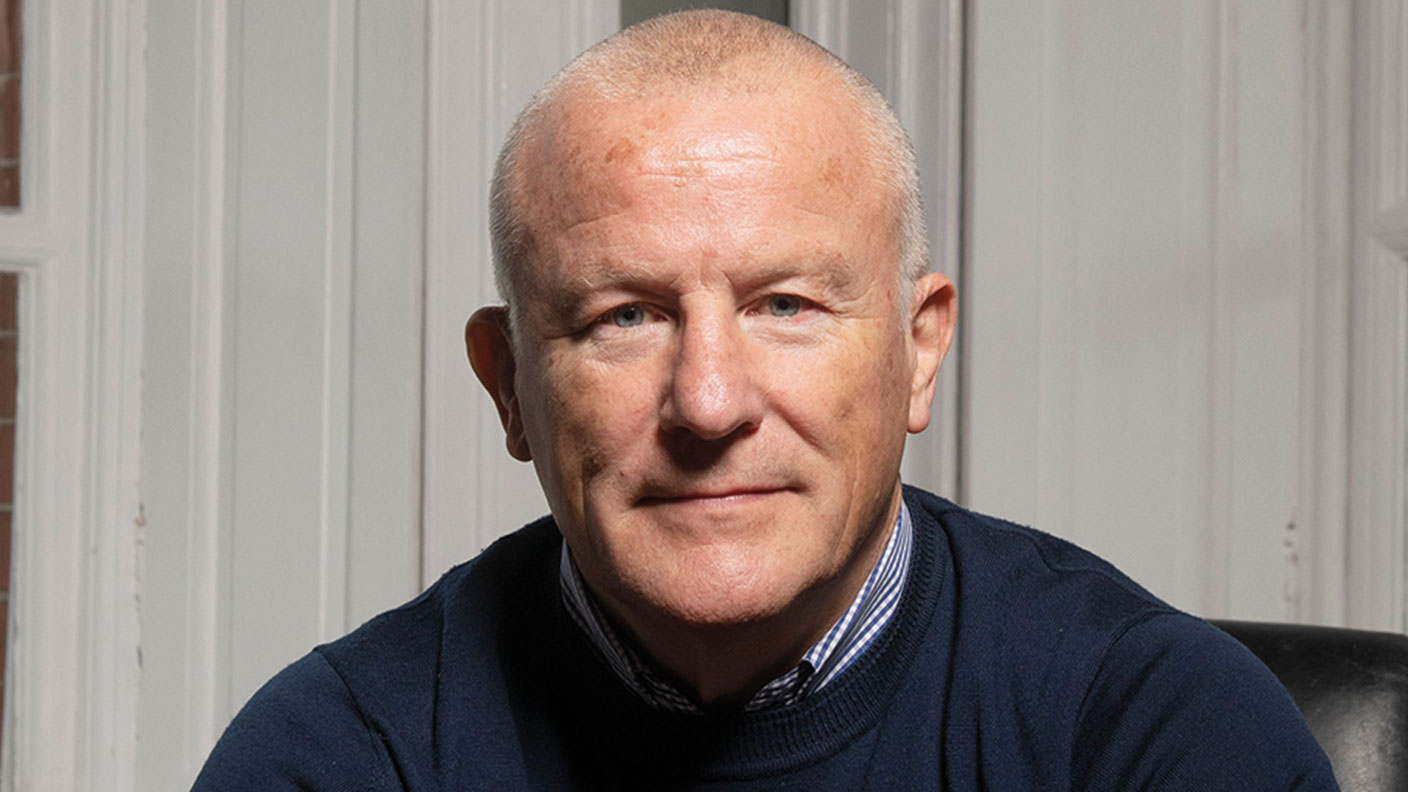What Neil Woodford’s woes mean for your money
With the suspension of dealing in Neil Woodford's Equity Income fund, John Stepek looks at where it all went wrong for the “star” fund manager, and what it means for you.

Get the latest financial news, insights and expert analysis from our award-winning MoneyWeek team, to help you understand what really matters when it comes to your finances.
You are now subscribed
Your newsletter sign-up was successful
Want to add more newsletters?

Twice daily
MoneyWeek
Get the latest financial news, insights and expert analysis from our award-winning MoneyWeek team, to help you understand what really matters when it comes to your finances.

Four times a week
Look After My Bills
Sign up to our free money-saving newsletter, filled with the latest news and expert advice to help you find the best tips and deals for managing your bills. Start saving today!

Just a reminder we're holding the Wealth Summit on 22 November in central London. We'll be discussing everything from the best long-term sectors to invest in right now, to the best ways to insulate your wealth from today's political upheaval. Don't miss it make sure you're the first to hear when the tickets go on sale by signing up for the alerts now.
Back to the big news of the week yesterday, trading in Neil Woodford's flagship Woodford Equity Income fund was suspended.
In short, if you don't own it, you can't buy it. More importantly, if you do own it, you can't get your money out, not until it opens up again.
MoneyWeek
Subscribe to MoneyWeek today and get your first six magazine issues absolutely FREE

Sign up to Money Morning
Don't miss the latest investment and personal finances news, market analysis, plus money-saving tips with our free twice-daily newsletter
Don't miss the latest investment and personal finances news, market analysis, plus money-saving tips with our free twice-daily newsletter
It's not dissimilar to what happened with commercial property funds in the wake of the Brexit vote.
So what happened? And what does it mean for holders? And for wider markets?
Another coin-tosser bites the dust?
The trouble with being a star fund manager, is that it's always hard to know if you're good or just lucky.
If you get enough people in a big room, and ask each of them to toss a coin ten times, then a small number of them will end up getting "heads" ten times in a row.
And the worrying thing about financial markets is that the distribution of successful active fund managers looks an awful lot like the distribution of successful coin tossers.
And now the run of one of the UK's best-known coin-tossers appears to have come to a very painful ending.
"Famous" is pushing it, but Neil Woodford is one of the vanishingly few names in British fund management who might be known to significant numbers of people outside the investment world.
He was best known for owning tobacco stocks and not owning tech stocks. That made him, and his investors, a lot of money over the years.
He then went off on his own to launch his own funds, with the help of broker Hargreaves Lansdown. At this point, he took something of a new approach.
While the flagship fund was called "Woodford Equity Income", it derived most of the dividends from a small number of holdings, while also owning lots of small stakes in early-stage biotech stocks and the like. (In March, The Times noted that fewer than a third of the stocks in the fund actually paid a dividend).
It was a bold move. Whatever else you might say, you could never accuse Woodford of running a closet tracker fund.
Problem is, while a lot of investors bought into the Woodford name, the performance has been terrible. According to Citywire, the fund has lost around 7.5% over the last three years. The average UK Equity Income fund has gained 20% in that time.
As a result, people have been voting with their feet. Two years ago, at the peak of its popularity, the fund had £10.2bn in assets under management. By last week, that had fallen to £3.77bn. And in the last month alone, the fund has lost £560m in assets.
Owning hard-to-shift stock is no fun when everyone wants their money back
Part of Woodford's problem is that, as that money has flooded out of the fund, he has had to sell out of his liquid (easily sold) equities in order to fund redemptions.
As a result, he has been struggling to keep the proportion of his fund invested in illiquid or unquoted stocks to below 10% (which is the regulatory ceiling).
This has resulted in some impressive financial gymnastics. He listed some of his stakes on the Guernsey stock market (which gets them recategorised for regulatory purposes, but doesn't make them a lot more liquid).
As Dan Grote of Citywire highlighted back in March, the Woodford fund in fact had close to 18% of its assets in unquoted stocks, if you include these stakes.
Woodford also swapped shares in his own Patient Capital investment trust for stakes in five of the unquoted companies. The deal was controversial (here's what we wrote at the time), and it also made clear the extent of Woodford's woes.
These obvious structural problems almost certainly made the run on the fund even worse. As Ryan Hughes of AJ Bell pointed out: "With an element of the fund in illiquid investments, it is clear that the fund was having to sell the more liquid holdings to fund the redemptions, which in turn can exacerbate the problem."
The straw that finally broke the camel's back appears to be the news that Kent County Council decided to pull out £250m from the fund. The council now won't be able to do that it's stuck along with every other investor.
What this means for Woodford holders and for wider markets
OK, so what does it all mean? First things first, if you own the fund, don't panic. The money is still there. But there's not much you can do you just have to hang on and hope.
The fund has been suspended for at least 28 days. The stated goal is for Woodford to finish restructuring the fund ie, to offload the most illiquid stuff.
What will happen after that? There's no way of knowing. It's never good to be viewed as a forced seller. And odds are that people will be queueing up to pull their money out when the doors eventually open again.
Put it this way the suspension is unlikely to have a positive effect on the value of your holding in the fund. But, as I said, you just have to sit tight.
As for the knock-on effect it's bad news for the Woodford Patient Capital Trust (LSE: WPCT), whose shares hit an all-time low this morning. Investment trust researcher Winterflood reckons that the suspended fund owns about 74% of the trust's portfolio.
As a result, any drop in share prices or asset valuations that results from the restructuring at the suspended fund could have a knock-on effect on the trust.
We've never been big fans of this trust (see my colleague Max King's take here). That said, every fund has its price and perhaps it might end up being an interesting special situation in the future. But I'd be very wary of taking any exposure to it until there's more clarity on what's happening with the main fund.
It's also a blow for Hargreaves Lansdown, who championed Woodford in his new incarnation. The broker's clients in total own £1.4bn of the fund accounting for a full third of its assets under management.
As Gavin Lumsden puts it on Citywire, "while Hargreaves Lansdown's reputation for service is undimmed, the credibility of its investment guidance and stewardship of customers is damaged."
Finally, it's another reminder that if you're going to invest in active funds, you're generally better with investment trusts, particularly if the manager plans to dabble in anything exotic, or anything that requires long-term capital.
The portfolio's performance probably wouldn't have been any better. But at least you could have got your money back when you wanted, as long as you were prepared to take the hit.
Get the latest financial news, insights and expert analysis from our award-winning MoneyWeek team, to help you understand what really matters when it comes to your finances.

-
 Average UK house price reaches £300,000 for first time, Halifax says
Average UK house price reaches £300,000 for first time, Halifax saysWhile the average house price has topped £300k, regional disparities still remain, Halifax finds.
-
 Barings Emerging Europe trust bounces back from Russia woes
Barings Emerging Europe trust bounces back from Russia woesBarings Emerging Europe trust has added the Middle East and Africa to its mandate, delivering a strong recovery, says Max King
-
 Hargreaves Lansdown takeover: what it means for your money
Hargreaves Lansdown takeover: what it means for your moneyBritain’s biggest investment platform has agreed a £5.4 billion takeover. What does it mean for shareholders and customers?
-
 Neil Woodford’s back – but has he really learned anything?
Neil Woodford’s back – but has he really learned anything?Opinion Disgraced fund manager Neil Woodford is planning a comeback. But he doesn’t seem to have learned much from his many mistakes. So why would anyone invest with him now?
-
 Neil Woodford’s back – but sometimes sorry isn’t enough
Neil Woodford’s back – but sometimes sorry isn’t enoughAdvice Neil Woodford’s funds blew up in 2019. Now he is on the comeback trail. But his apologies are unconvincing.
-
 Woodford investor? Your first payment is coming soon
Woodford investor? Your first payment is coming soonNews Private investors left stranded by the collapse of the Woodford Equity Income fund will soon be getting at least some of their money back. But they will have to wait a while longer to see how much more – if any – they will receive.
-
 Neil Woodford continues to cast a shadow over his successor at Invesco
Neil Woodford continues to cast a shadow over his successor at InvescoFeatures Mark Barnett, former star manager Neil Woodford’s successor at Invesco, has applied the same formula, and is struggling.
-
 Is it time to buy Patient Capital Trust?
Is it time to buy Patient Capital Trust?Features Neil Woodford’s Patient Capital Trust has been taken over by asset manager Schroders. The share price has surged - but should you buy in? John Stepek looks at the trust’s prospects.
-
 Neil Woodford: no silver lining for his investors
Neil Woodford: no silver lining for his investorsEditor's letter Neil Woodford made every mistake it is possible to make as a money manager. And his investors have been stiffed. But however wrong it all went, Woodford never stopped taking the fees.
-
 Woodford believed his own hype – now his investors are paying the price
Woodford believed his own hype – now his investors are paying the priceFeatures Neil Woodford was once one of the brightest stars in Britain’s investment firmament. Then he came crashing down to earth. John Stepek explains what went wrong.